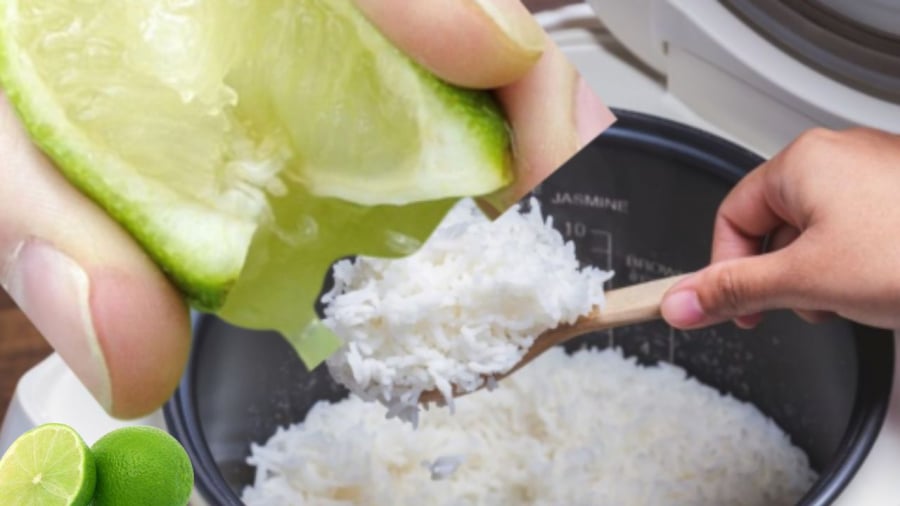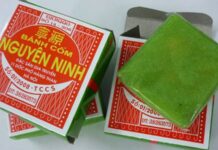The Benefits of Adding Lemon Juice to Cooked Rice
Cooking rice is not just about rinsing the grains, adding water, and pressing the button on your rice cooker. Knowing a few simple tricks can make your rice taste better, be more fluffy, and have shinier individual grains. One such trick is to add lemon juice to your rice. It’s simple: Rinse your rice, add it to the pot, and then add just enough water for the type of rice you’re using. Then, add a bit of fresh lemon juice. The general ratio is about one teaspoon of lemon juice for every cup of rice. Don’t add too much or too little, as it might not have the desired effect.
Lemon juice has acidic properties, which help make the rice fluffier. When you add lemon juice to your rice, you’ll find that the individual grains become softer, fluffier, and easier to scoop and separate. Lemon juice also acts as a natural preservative, so your rice will stay fresher for longer, especially during hot weather.

Lemon Juice Makes Rice Fluffier and Whiter
When adding lemon juice to your rice, be careful not to let any seeds fall into the pot, as they can make the rice bitter. Also, be sure to use fresh lemon juice, not juice from a bottle, as it may contain preservatives that can affect the taste. And avoid getting any of the lemon oil from the peel into the rice, as it can also turn bitter during cooking.
If you don’t have fresh lemons on hand, you can substitute apple cider vinegar or white vinegar in a pinch, but be sure to use high-quality vinegar to avoid any off flavors.
Adding Oil to Your Rice Makes It Richer and More Flavorful
To make your rice more glossy, flavorful, and rich, try adding a bit of oil to the pot. The fat in the oil helps coat the rice grains, making them softer and less likely to dry out, so your rice stays fresher for longer. You can add the oil while the rice is cooking, or you can wait until it’s done and then mix it in. Just be sure not to add too much, as it can make your rice greasy and heavy.
As a general rule, use about one teaspoon of oil for every cup of rice. And choose an oil with a mild flavor, like grapeseed oil, or even lard, to avoid overpowering the natural taste of the rice. Stay away from beef fat and, especially, fish oil. If you’re using older rice or a variety that tends to be drier and less sticky, adding oil can definitely improve the texture and make your rice nice and glossy.

Oil Helps Rice Grains Become Shinier and More Delicious
Cooking Rice with Orange or Tangerine Peel for a Delightful Aroma
The essential oils found in orange and tangerine peels have a wonderful fragrance that can enhance the aroma of your cooked rice. Simply place a small piece of dried orange or tangerine peel into the pot before cooking. The heat will release the oils, infusing your rice with a subtle, delightful scent. Be sure to use only the peel, as the fruit itself can make your rice sticky. And always opt for organic citrus fruit to avoid any wax or preservatives that may be present on the peel.

Tangerine Peel Also Adds a Wonderful Fragrance to Your Rice
A Pinch of Salt and Sugar Makes Your Rice More Delicious
Adding a tiny bit of salt and sugar to your rice can enhance its flavor. This is especially useful if your rice tends to have a bitter taste. The sugar and salt work together to balance out any bitterness, making your rice taste sweeter and more savory. Just remember to use sparingly—about a pinch of each for every cup of rice.
The Magic Potion for a Sparkling Throne: Pour Hot Vinegar Down Your Toilet and Be Amazed!
Introducing the versatile liquid with a multitude of uses beyond the kitchen – vinegar. This humble household staple is a powerhouse when it comes to tackling a variety of tasks, from cleaning to gardening and even personal care. With its natural acidic properties, vinegar is a true hero for those seeking effective and affordable solutions for a healthier, happier home.





































